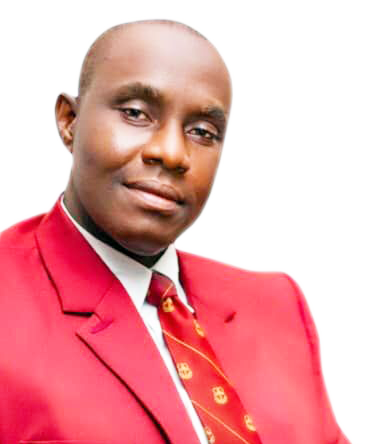Ruling class creation of multidimensional poverty

Sunny Nwachukwu (Loyal Sigmite), PhD, a pure and applied chemist with an MBA in management, is an Onitsha based industrialist, a fellow of ICCON, and vice president, finance, Onitsha Chamber of Commerce. He can be reached on +234 803 318 2105 (text only) or schubltd@yahoo.com
February 20, 2023499 views0 comments
Poverty is one word that means so many things to different human beings. It is the state of not having enough money to meet basic needs, which includes food, clothing and shelter. However, it is much more than just not having enough money or material possessions, which translates to a state of penury and want, ranging from extreme want of necessities to an absence of material comforts. It is lacking financial capacity for a basic level of living where one is barely able to afford the basics of life, like not being able to send children to school or afford medical facilities. For a national economy, according to the World Bank, poverty is a severe lack of well-being that has various aspects (low earnings and the inability to obtain the essential commodities and services required for a dignified existence in the society; including poor health and education, a lack of access to safe drinking water and sanitation, a lack of physical security, a lack of voice for advocacy, and a lack of capacity and chance to improve the people’s life, through regular job to earn or live regular life with basic necessities of life).
Nigeria has, for some time now, been classified as the poverty capital of the world, with serious hunger level that ranks the country 103rd out of 121 countries; while the international organisation projected in 2022 the number of poor Nigerians to hit 95.1 million (in other words, over half of the country’s population is here identified to be “multidimensionally poor”).
Take this quote from one of Nelson Mandela’s wisdom nuggets: “Poverty is not natural, it is man-made”. He went further to state that, “poverty is not an accident. Like slavery and apartheid, it is man-made and can be removed by the actions of human beings.” These deep words of wisdom and knowledge call for this discourse on relative poverty from the social perspective in terms of standard of living that is lower than global economic standards, based on the income difference (that brings its own “dysfunctional inequality” and creates its peculiar “class distinction”, which violates the fundamental procedures and processes on micro-economic concepts of growth, and at the same time, is not supported by any known macroeconomic principles within the nation’s economy). Some of these challenging factors as identified from the social perspective critically dwell on “moral values” and a mindset with an unnecessary urge to get-rich-quick by privileged Nigerians placed in top positions of authority (mostly found among the politically advantaged persons that are heartless, without conscience, nor compassion towards the vulnerable Nigerian masses.
The clause, “multidimensional poverty”, which this class of people creates, includes the type of poverty Nelson Mandela described as “man-made” (that is not natural, nor an accident but, like “slavery and apartheid”, it can be removed by the actions of human beings). This particularly identified man-made poverty in the country’s economy (as manifested among the affected within the ruling class) is economically not sustainable, it is counterproductive, it is morally unacceptable, it is politically, a mortal tsunami; it is spiritually evil, it is socially calamitous, environmentally disastrous, and finally, a governance fraudulent conduct that lacks moral values and ideals of servant leadership with ethos of sound public stewardship.
One has been very careful to avoid using the word “corruption” because, that is the closest synonym to this act of wickedness exhibited for inordinate ambition to amass ill-gotten wealth, by these very hungry, heartless, seared conscience, “morally-poor” fellows that suddenly and stupendously get rich overnight, at the expense of the “interests of the state or nation”, and the general well being of the vulnerable masses, by looting the commonwealth of citizens.
This man-made poverty symptom that has eaten deep into the socioeconomic and political fabric of Nigeria can only be removed by the actions of “other-people centred”, selfless Nigerians in leadership positions (the public servants), as well. Good leaders in governance touchpoints, who have the wellbeing of the citizens at heart would start “removing” hardship created by fellow men through setting up infrastructure that can economically turn things around; for Job creation at the labour market for the teeming unemployed job-seekers/youths who are mostly young graduates from the universities in the country. Also, by creating an enabling environment at the marketplace to support ease of doing business for the growing population of fresh entrepreneurs scattered all over the economic sub-sectors in the country (with nascent business concepts and great ideas). These will in no small measure create wealth in diverse ways and dimensions, for a means of sustainable livelihood and affordable three square meals by numerous bread winners within the economy. The society will enjoy a fresh air of relief from incessant heinous criminal activities, violence of all shades and forms because of the engaged “earlier idle hands” in meaningful services that will productively grow the economy; and in no small measure, reduce the population of the out of school children by poor parents, as well as reduction of the high rate of infant mortality and low life expectancy because of improved health care services.
-
business a.m. commits to publishing a diversity of views, opinions and comments. It, therefore, welcomes your reaction to this and any of our articles via email: comment@businessamlive.com
